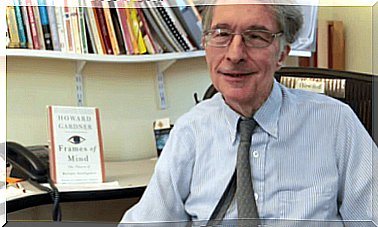What Is Phenomenological Psychology?

Jaspers first introduced the method of phenomenological psychology. Specifically, the application of phenomenology was basically in the study of psychopathology. Its immediate acceptance in German psychiatry suggested that we were facing a revolutionary turn.
Until then, the study of psychopathology was dominated by the French school, hardly questioning the nature of its method. Phenomenology conquered the rest of Europe and the United States, with many demonstrating that its application in clinical practice and research were guarantees of scientificity and rigor.
However, criticism began to come from researchers interested in the validity of the clinical findings. They attacked any study that was not objective, that did not abide by the strict rules that Hempel had clearly decreed.
As a result of all this struggle for validity, psychopathology suffered a profound crisis that affected its foundations. All this exploded with the “new psychiatry”, in the early 1970s, based on evidence, the development of DSM-III and the birth of neurobiology.
Phenomenology lost all previous credit. It was patronizingly accepted as a conceptually outgrown residue. It continued to be used in everyday clinic under the vague, confused and ambiguous name “descriptive psychopathology.”

Phenomenological psychology: what is psychology and what is phenomenology
Of all the distinctions by which the science of psychology can be subdivided, the distinction between psychology as natural science and as human science takes precedence. This distinction can be seen throughout the history of philosophy and psychology.
The methods of psychology as a natural science are those found in biology, chemistry, or physics. The methods of psychology as a human science are those found in history, sociology, and anthropology.
At present, there is a great debate as to whether phenomenology should be considered only a viable method for psychology as a human science or as a human and natural science. Therefore, the way in which phenomenological psychology should be understood is the subject of some controversy.
Phenomenological psychology
Phenomenological psychology as a science deals with what is necessary and universal in human experience. This runs counter to the approach to human experience that seeks to record subjective experience.
While “phenomenology” refers to the study of what is objective in subjective experience, “phenomenography” refers to the study of what is subjective in subjective experience.
Perhaps the most promising approach to phenomenological psychology can be seen in Aron Gurwitsch’s work on the phenomenology of Gestalt psychology.

Phenomenological Psychology for Martin Heidegger
Martin Heidegger has provided a number of valuable insights on how phenomenology can be related to psychology. Heidegger saw an “unbridgeable gap between philosophy and science”: “I have reservations about science, not science as science, but only about the absolute claims of natural science.”
From this discussion, Heidegger provides his understanding of the distinction between psychology and philosophy in his use of phenomenology. When phenomenology is used as a method of understanding being, then phenomenology is used philosophically. When phenomenology is used as a method to understand being as a human being, then it is used psychologically or anthropologically.
To further clarify the meaning of phenomenological psychology as a science, phenomenology is contrasted with phenomenography. Phenomenography refers to the study of the merely subjective aspects of experience. To clear up the possible confusion regarding the potential use of phenomenology for psychology, the claim was made that much of what is called “phenomenology” today is actually phenomenography.
Finally, Heidegger’s Dasein analysis continues to influence the world as a viable psychotherapeutic method. This also extends Heidegger’s value and influence beyond academic philosophy and psychology.
His philosophy, as “a type of therapy,” does not necessarily require a therapist; The therapeutic value involved points more to the presence of philosophy in psychology, betting more on a psychology as a human science than as a natural science.









